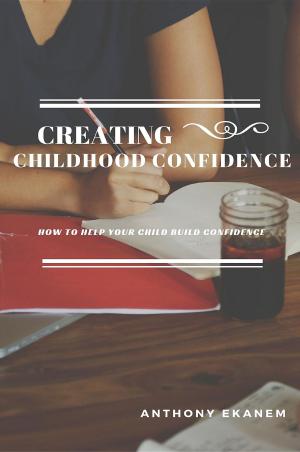| Author: | Anthony Ekanem | ISBN: | 9783961122066 |
| Publisher: | Anthony Ekanem | Publication: | September 20, 2016 |
| Imprint: | Language: | English |
| Author: | Anthony Ekanem |
| ISBN: | 9783961122066 |
| Publisher: | Anthony Ekanem |
| Publication: | September 20, 2016 |
| Imprint: | |
| Language: | English |
Esteem is a simple word. It is worth and value that we apply to people, places, and situations. It is the amount of respect we assess. We have esteem for our world leaders. We have esteem for places like church and synagogue. We have esteem for an exemplary performance whether it is in sports, acting, or simply doing the right thing. But the most important place we need to apply esteem is within ourselves. We must maintain our self-esteem in order to place value on ourselves as a worthy individual in the world. Self-esteem can affect every single part of our lives. If that esteem is low, our lives will be dull and gray. Elevating esteem for ourselves could very well be the key to happiness in life. Most people's feelings and thoughts about themselves fluctuate somewhat based on their daily experiences. The grade you get on an exam, how your friends treat you, ups and downs in a romantic relationship-all can have a temporary impact on your well-being. Your own self-esteem, however, is something more fundamental than the normal "ups and downs" associated with situational changes. For people with good basic self-esteem, normal "ups and downs" may lead to temporary fluctuations in how they feel about themselves, but only to a limited extent. In contrast, for people with poor basic self-esteem, these "ups and downs" may make all the difference in the world. People with poor self-esteem often rely on how they are doing in the present to determine how they feel about themselves. They need positive external experiences to counteract the negative feelings and thoughts that constantly plague them. Even then, the good feeling (from a good grade, etc.) can be temporary. Healthy self-esteem is based on our ability to assess ourselves accurately (know ourselves) and still be able to accept and to value ourselves unconditionally.
Esteem is a simple word. It is worth and value that we apply to people, places, and situations. It is the amount of respect we assess. We have esteem for our world leaders. We have esteem for places like church and synagogue. We have esteem for an exemplary performance whether it is in sports, acting, or simply doing the right thing. But the most important place we need to apply esteem is within ourselves. We must maintain our self-esteem in order to place value on ourselves as a worthy individual in the world. Self-esteem can affect every single part of our lives. If that esteem is low, our lives will be dull and gray. Elevating esteem for ourselves could very well be the key to happiness in life. Most people's feelings and thoughts about themselves fluctuate somewhat based on their daily experiences. The grade you get on an exam, how your friends treat you, ups and downs in a romantic relationship-all can have a temporary impact on your well-being. Your own self-esteem, however, is something more fundamental than the normal "ups and downs" associated with situational changes. For people with good basic self-esteem, normal "ups and downs" may lead to temporary fluctuations in how they feel about themselves, but only to a limited extent. In contrast, for people with poor basic self-esteem, these "ups and downs" may make all the difference in the world. People with poor self-esteem often rely on how they are doing in the present to determine how they feel about themselves. They need positive external experiences to counteract the negative feelings and thoughts that constantly plague them. Even then, the good feeling (from a good grade, etc.) can be temporary. Healthy self-esteem is based on our ability to assess ourselves accurately (know ourselves) and still be able to accept and to value ourselves unconditionally.















